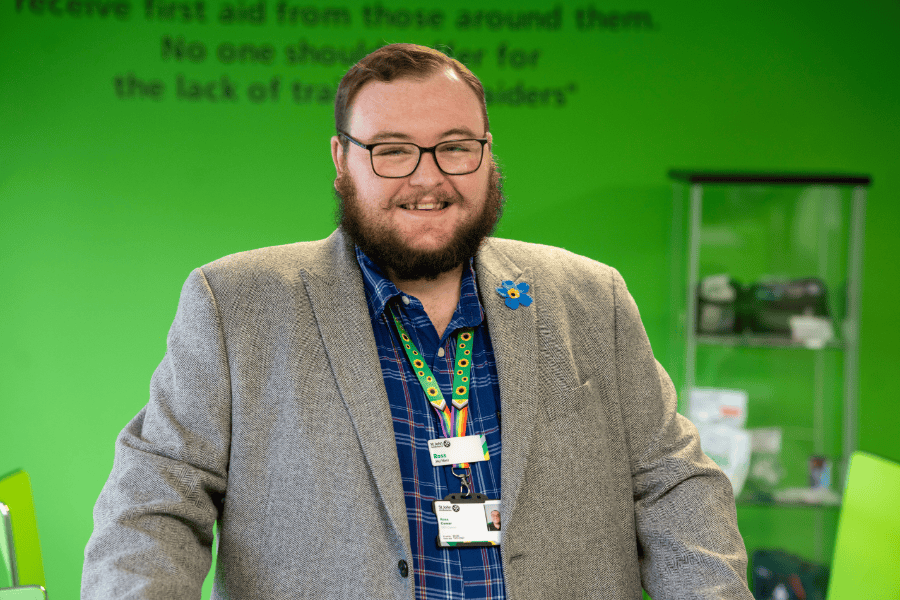Ross Comer, a trainer for St John Ambulance, was driving across a bridge when he saw a man on the wrong side of the barriers.

Me and my partner had just treated our boys to a McDonalds and were driving home across a bridge near the docks when I saw the man sitting on the wrong side of the barriers.
I just got a sicky knot in my stomach and I knew there was something just not right. I couldn’t just do nothing.
I parked up and told my partner I’d be a couple of minutes and made my way back over the bridge. I was a little nervous, but I think you’re always gonna get some nerves in a situation like that. I’ve been in similar situations before and it never gets easier.
When I got closer, I saw that the man had a bottle in his hand and you could tell that he was intoxicated. I asked him from a distance if he was okay, and he started saying stuff like how there was no point and he didn’t want to be here.
Luckily, a woman passed at that moment, and I was able to discreetly ask her to call the emergency services.
The man told me that he’d lost both his parents in a short amount of time. He just seemed be in a very low moment.
I’m a trainer for St John Ambulance, and something I teach in my courses is to think about grief as being like a ball in a box. At that moment, the ball is the only thing that can fit, nothing can fit around it. In time, the ball doesn’t get smaller, but the box does grow and you can begin to fit more stuff around the ball.
I was still conscious about where he was sitting, so after chatting for a little bit, I said, “I’m a little bit nervous about where you’re sat. Can you do me a favour and just come and shuffle up a little bit and we'll have a little chat over here.”
In those situations, the idea is just to keep them talking. The decision to go on to carry out suicide, to take your own life, you can sit on that ledge for hours and hours and hours, but the decision only takes a split second. If you can keep that person talking for long enough, that second passes, and they’re more likely to come back. That’s what I kept in mind as I spoke to him.
The emergency services arrived within five minutes, which was really impressive. By that point, he’d shuffled back and was sitting on the grass next to me, so the police were able to take over from there.
What I’d advise anyone who might feel apprehensive or nervous about encountering a similar situation is that as long as you’re trying to be kind and empathetic, you can’t really say the wrong thing. I think people get hung up too much on official wording and what they can and can't say, but actually it's not about that. It's about how you say something.




